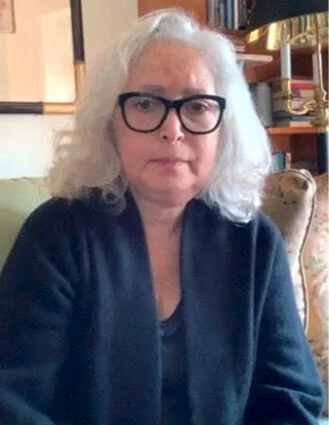Physician ‘Horribly Injured’ and “Incapacitated" after Pfizer Vaccine. She Plead w/US Public Health Officials for Help — Got Dissed
/From [HERE] Danice Hertz, a 64-year-old physician who was “horribly ill” and “incapacitated” after getting Pfizer’s COVID vaccine, claims U.S. health agencies are ignoring thousands of adverse events.
In an exclusive interview with The Defender, Hertz said if she could go back in time, she would not have gotten vaccinated.
Hertz said she has been in contact with numerous health agencies, physicians and researchers — including the National Institutes of Health (NIH), U.S. Food and Drug Administration (FDA), Centers for Disease Control and Prevention (CDC), U.S. Surgeon General and doctors at Harvard and Stanford universities and Cedars-Sinai Medical Center in Los Angeles — in an effort to obtain help for the neurological injuries she suffered after getting the vaccine.
Hertz told The Defender there are thousands of people like her — who have been injured by COVID vaccines — who are suffering and need help, yet they’re ignored by mainstream media and U.S. health agencies. Meanwhile, COVID vaccine mandates are being rolled out for millions of Americans, with barely any discussion of the risks.
Hertz, a gastroenterologist who retired in October, got her first and only dose of Pfizer’s vaccine on Dec. 23, 2020. “There was an opportunity to get the vaccine because the hospital was giving it to every doctor,” Hertz said. “I didn’t know if I would need to go back into the workforce, so I ran to get it. Within 30 minutes, I started experiencing adverse effects.”
“I waited the 15 minutes you’re required to wait after you get it, and I went to the car and my face started burning,” Hertz said. “I drove home five minutes away, and by the time I walked through the door, I told my husband to call the paramedics.”
Hertz said within 24 hours she developed neurological symptoms, including severe paresthesiasin her face, tongue, scalp, chest wall and limbs, as well as tremors, twitching, weakness, headaches, tinnitus and imbalance.
“My blood pressure was 186 over 127, which I’ve come to find is characteristic of these reactions,” Hertz said.
Hertz called her doctor, and took Benadryl and steroids in case she was having an allergic reaction. The next day her face turned completely numb.
Hertz said:
“My entire face felt like it was burning — like acid had been poured on my face. I had sensations throughout my body like it was vibrating. I felt like I had a tight band around my chest, chest pain and shortness of breath, and I went to bed for seven days.”
Hertz followed up with an allergist who treated her with steroids in case she was experiencing an allergic reaction to the vaccine. After a few weeks of no improvement, Hertz met with the chief neurologist at Cedars-Sinai.
“I saw six neurologists, five allergists, three rheumatologists, and no one had a clue,” Hertz said. “They did blood work, skin biopsies, an MRI and more, and nothing really came up. Unfortunately, if a doctor doesn’t know what’s wrong with you they’re done with you, though that’s not how I practiced.”
“Early on, when Hertz was evaluated by the first neurologist, Hertz requested a “CISA consult” with the CDC.”
According to the CDC’s website, the Clinical Immunization Safety Assessment (CISA) Project was established in 2001 to address the unmet vaccine safety clinical research needs of the U.S.
CISA is a national network of vaccine safety experts from the CDC’s Immunization Safety Office and seven medical research centers, plus other partners who address vaccine safety issues, conduct high-quality clinical research and assess complex clinical adverse events following vaccination.
The CISA Project also provides consultation to U.S. clinicians who have vaccine safety questions about a specific patient residing in the U.S. It also provides consultation to U.S. healthcare providers and public health partners on vaccine safety issues, and reviews clinical adverse events following immunization involving U.S.-licensed vaccines.
Hertz’s case was accepted into the CISA Project and was presented at the CDC’s grand rounds on March 24. Five weeks later, a physician forwarded a letter to Hertz suggesting she had “mast cell disorder.”
The CISA Project never followed up with her. [MORE]






































































































































































































































































